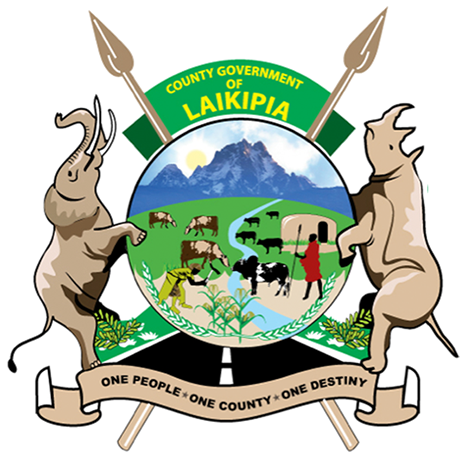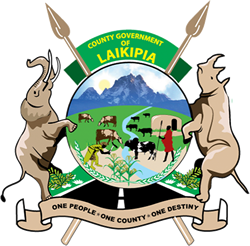Concern Over Spiraling Cases Of Juvenile Diabetes
At the LHS Nanyuki Diabetes and Hypertension Clinic, a sizeable proportion of the clients seen here are children. It is a worrying trend - a reality that medics say is far from what is in public knowledge.
It is this lack of public awareness on diabetes that keeps Nancy Muchiri, the nurse in charge of the clinic, at great discomfort.
Ms. Muchiri explains that the notion that only adults, and specifically rich ones, do suffer from diabetes is still rife in communities. This wrong notion is dealing a big blow to the efforts to provide care for diabetic children who are suffering in silence.
Anyone can get diabetes and like adults, kids do suffer from the condition, and the numbers are going up every day. Diabetes prevalence in the central Kenya Region is a worrying trend that is threatening the wellbeing of the productive segment of the population.
the nurse says.
She attributes this trend to the region's dieting habits of consuming starch owing to the abundance of potatoes.
Following training on diabetes care by the Ministry of Health in 2017, Ms. Muchiri embarked on establishing the Diabetes and Hypertension Clinic the following year at LHS Nanyuki to cater for the growing number of patients in need of the service. The decision was reached with the understanding that these patients already have compromised health and might end up contracting communicable diseases from other patients should they mix, further risking their lives.
Muchiri shares interesting findings from clients she has interacted with since the opening of the clinic, where she has experienced firsthand the utter misconceptions about diabetes in the public.
I have seen patients get emotional, especially parents of kids diagnosed with the condition. It may sound unbelievable, but our people out there think diabetes is a disease for the rich, or old people.
Muchiri says. I explain to them that this is not a death sentence and the treatment is affordable especially with insurance.
This knowledge assessment on diabetes awareness has helped me better relationships with my patients, as I have developed better ways to communicate to them in a very simple but effective way. This has worked magic in patients' compliance with the medications we prescribe.
the nurse explains.
So far, the clinic has registered over 1,600 persons, some of whom are living with both conditions. Clients here benefit from constant monitoring of blood sugar levels, drugs prescription, nutritional and lifestyle counselling to stabilize blood sugar levels. She attributes the big turnout of patients seeking care to the ambassadorial role played by those who have benefitted from the service, as they refer others from their communities.
Most of the cases being managed by the clinic are those that have been picked up during hospital visits where completely unsuspecting parents present their children for treatments of other ailments.
A number of them are referred from other facilities by diabetes care medics who have formed a nationwide forum to strengthen the reach and impact of the initiative.
Currently, the clinic attends to 33 children living with mostly type 1 diabetes, with some as young as nine years old. To enable efficient monitoring, the medics run a WhatsApp group with the parents, with the initiative having brilliant results.
Through support from Norvo Nordisk, the clinic is able to provide care to children through the provision of diabetes test kits, insulin doses and consumables, and education materials to strengthen home care.
The education materials contain children-friendly concepts to help them live a diabetes-healthy lifestyle to control their blood sugars. The self-care manual guides the teen patients on how to do test their blood sugar levels and the insulin self-injection procedures.
Type 1 diabetes, once known as juvenile diabetes or insulin-dependent diabetes, is a chronic condition in which the pancreas produces little or no insulin. Insulin is a hormone needed to allow sugar (glucose) to enter cells to produce energy. Different factors, including genetics and some viruses, may contribute to type 1 diabetes.
Although type 1 diabetes usually appears during childhood or adolescence, it can develop in adults.
Late diagnosis can be costly, and the effects can be irreversible damage to the kidneys that may need one to be put on dialysis or kidney transplant. Muchiri explains that her objective in diabetes patient care is to save as many people from costly dialysis or kidney transplants as she can.
Diabetes in itself is a burden to the public as it affects the productive populations, but that burden multiplies when the condition progresses to something like kidney failure.
she explains, adding, If I can reduce that burden through successful early care, I would be a happier person.
Muchiri says the clinic has achieved remarkable results, and the impact is being felt in the hospital's renal unit. For instance, the clinic shut its doors onset of Covid-19 only to reopen immediately following a spike in the number of patients in need of dialysis.
Muchiri explains that enough investments outreaches to schools and churches could scale up the success of diabetes, as the awareness of symptoms will encourage more people to seek checkups, this way enabling prompt intervention where cases are identified.
Symptoms of juvenile diabetes include increased thirst, frequent urination, hunger, fatigue, and blurred vision. Parents are advised to seek medical diagnosis to ascertain the cause of the symptoms, as this will enable healthcare givers to initiate early management plans. There is no cure for diabetes and blood sugar control through a healthy lifestyle, proper dieting, and treatment help manage the sugar levels, therefore saving one from the complications associated with the disease.
In Kenya, diabetes is one of the major killer non-communicable diseases, responsible for about 79,000 deaths in 2019 alone. A worrying concern is the fact that an estimated 40 per cent of Kenyans who live with diabetes are unaware of their condition, making a bad situation worse.
Estimates show that more than 500,000 Kenyans are living with chronic kidney disease, with diabetes and hypertension being the biggest contributors. Out of these, over 12,000 have end stage kidney disease requiring dialysis. Currently, over 5,000 patients are on dialysis in the country.
One is advised to go for yearly medical checkups, as the onset and progression of chronic kidney disease are preventable.



